China strengthens its influence in Central Asia as Russia looks on
The China-Central Asia Summit may have ended last week, but it seems that it is just the beginning for China's re-consolidated relations with Central Asia and also Russia, with an exchange of visits between Chinese and Russian officials coming up. Lianhe Zaobao correspondent Yu Zeyuan notes that China's influence in Central Asia is strengthening, not least the result of Russia's embroilment in the war in Ukraine.
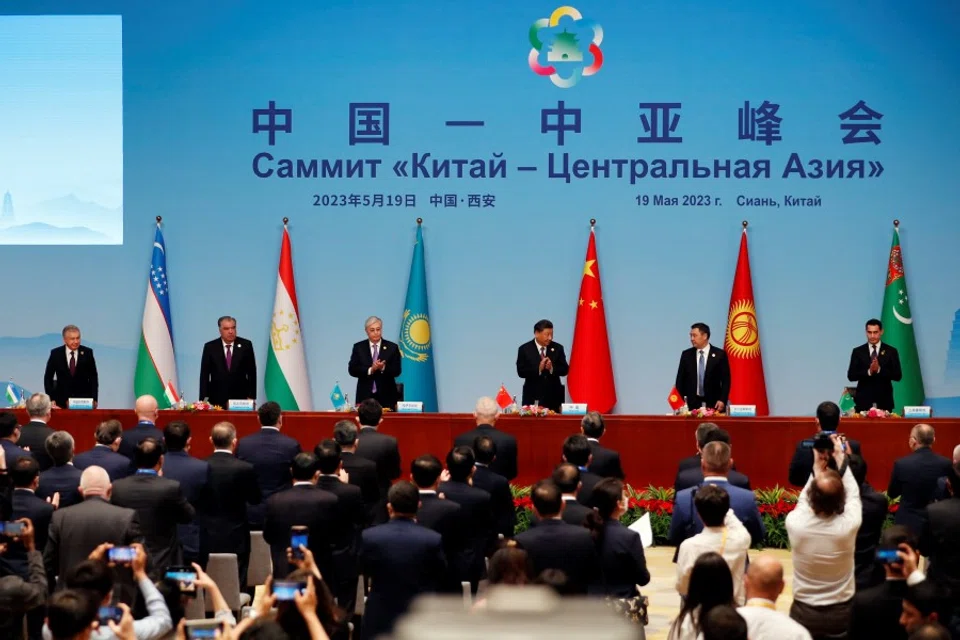
The China-Central Asia Summit that closed on 19 May in Xi'an is seen as a significant geopolitical, diplomatic and economic breakthrough for China. And with Russia opening up Vladivostok as a trading port for Chinese domestic goods, China's dividends from the war in Ukraine are beginning to show.
Milestone in China-Central Asia relations
The meeting's five Central Asian countries - Kazakhstan, Kyrgyzstan, Tajikistan, Turkmenistan and Uzbekistan - were former Soviet republics and fall within Russia's traditional sphere of influence. They are also members and guest attendee of the Shanghai Cooperation Organisation (SCO), which includes China and Russia.
Since the establishment of the SCO in 2001, China's relationship with the five Central Asian countries has grown significantly, albeit constrained by Russia, given its strong influence over them.
... this summit took place without Russia - one can imagine that if Russia were not deep in the Ukraine war and facing severe sanctions from Western countries, it would not easily accept being excluded.
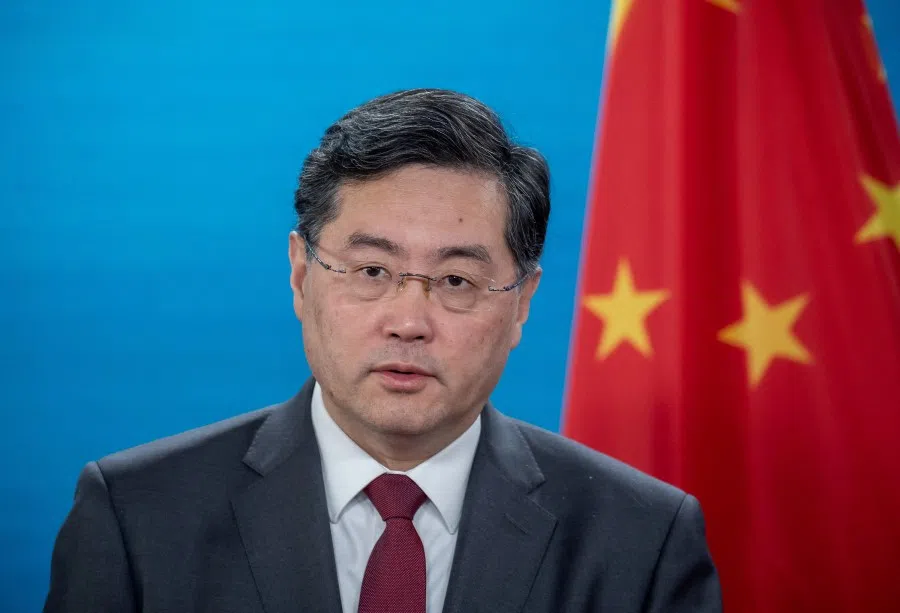
Chinese Foreign Minister Qin Gang said that the China-Central Asia Summit was the first major multilateral event hosted by China after the 20th Party Congress and this year's Two Sessions. It is the first in-person summit since the establishment of diplomatic relations between China and the Central Asian countries 31 years ago and the inaugural summit since the establishment of the China-Central Asia mechanism three years ago, marking a new milestone in China-Central Asia relations.
What Qin did not spell out is that this summit took place without Russia - one can imagine that if Russia were not deep in the Ukraine war and facing severe sanctions from Western countries, it would not easily accept being excluded.
During the summit, China and the five Central Asian countries signed seven bilateral and multilateral documents, including a joint summit declaration and a list of results of the summit, and over 100 cooperation agreements in various areas.
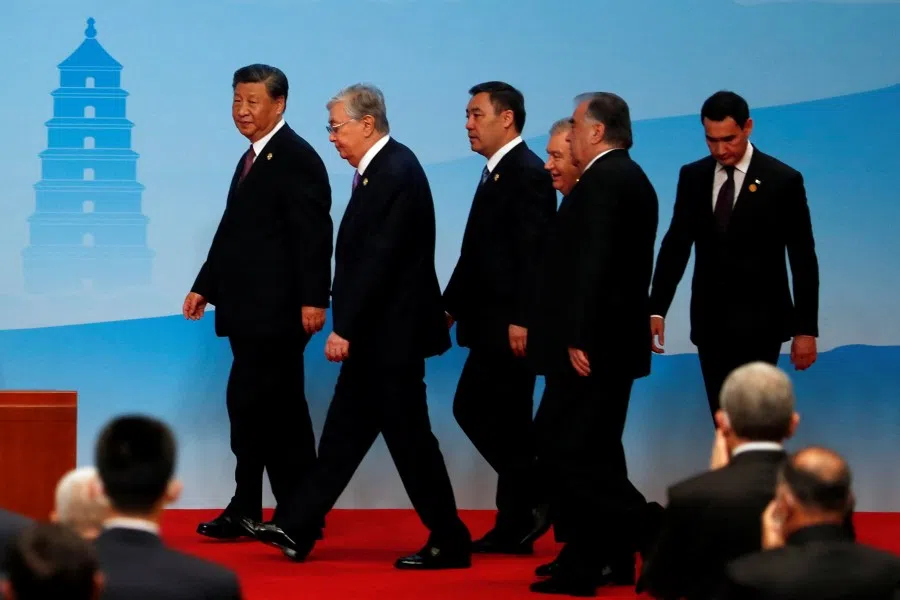
Qin described the summit's achievements as unprecedented in terms of results, substance and impact, as summarised by five "new" items. One, providing new impetus for deepening China-Central Asia relations. Two, establishing a new platform for expanding exchanges and cooperation in various fields. Three, opening up new prospects for mutually beneficial cooperation. Four, contributing new strength to upholding international fairness and justice. Five, setting up a new model of unity and self-reliance among developing countries
Qin added that China's cooperation with Central Asia is not targeted at nor subject to the control of any third party. It does not aim to create a closed and exclusive "club", and is against bloc politics and Cold War confrontation. The "third parties" mentioned by Qin Gang not only refer to countries outside the region, such as the US, but probably also includes Russia, which has close relations with Central Asia.
Russia opposes the construction of the CKU railway mainly out of concern that it will enhance China's influence in Central Asia...
Central Asia as a key transport hub
The summit declaration specifically mentions ramping up the construction of the China-Kyrgyzstan-Uzbekistan (CKU) railway project. It notes the need to consolidate Central Asia's key position as a transportation hub on the Eurasian continent, to speed up construction of the China-Central Asia transportation corridor, and develop multimodal transportation routes along various corridors, including China-Central Asia-South Asia, China-Central Asia-Middle East, China-Central Asia-Europe, and China-Kazakhstan-Turkmenistan-Iran.
The CKU railway is an important component of the southern route of the China-Europe Railway Express. A memorandum of understanding on the construction of a railway connecting China, Kyrgyzstan and Uzbekistan was signed as early as 1997. Once completed, this railway will reduce the rail distance from China to the Middle East and southern Europe by approximately 900 kilometres, cutting seven to eight days in travel time and making it more convenient for Central Asian countries to access ports in the Persian Gulf and the Pacific. However, there has been little progress in the CKU railway, due in no small part to obstruction by Russia.
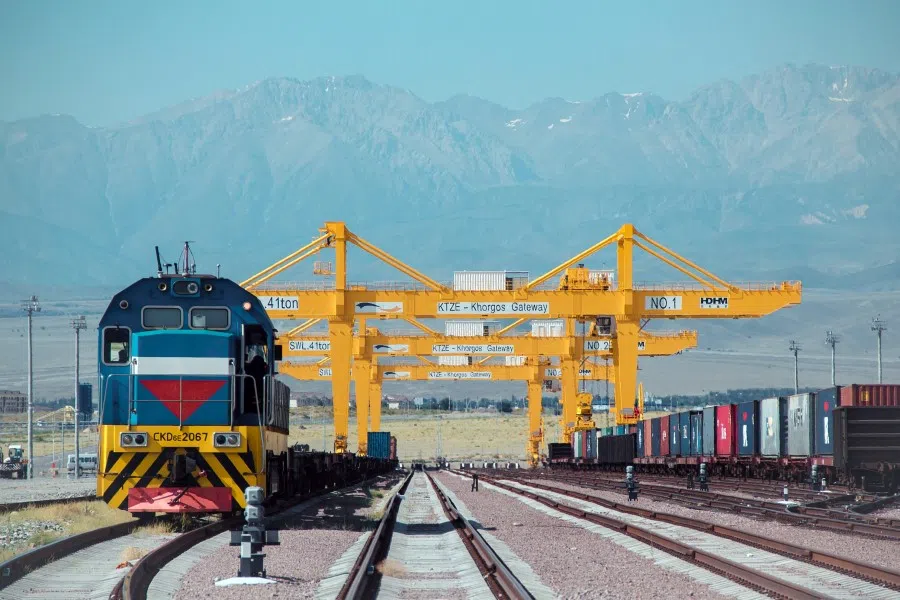
Russia opposes the construction of the CKU railway mainly out of concern that it will enhance China's influence in Central Asia, increasing Central Asian countries' dependency on China and diminishing Russia's control over the region. Facing Western sanctions following the start of the Ukraine war last year, Russia's dependence on China has become evident, and it had no choice but to agree to the construction of the CKU railway.
On 18 May, China's National Development and Reform Commission, Kyrgyzstan's Ministry of Transport and Communications, and Uzbekistan's Ministry of Transport signed a memorandum of understanding on the CKU railway, signalling that the feasibility study for the project is nearing completion.
Besides the CKU railway, China and Uzbekistan also announced the construction of another railway to connect Central Asia, Afghanistan and Pakistan.
Russia's increasing reliance on China
Russian officials have not publicly expressed opposition or raised any questions about this unprecedented summit between China and the five Central Asian countries. Evidently, Russia is aware of its inability to prevent Central Asian countries from establishing closer relations with China when it is also reliant on China's support and assistance.
... instead of opposing the China-Central Asia Summit, Russia has opened up the far eastern port of Vladivostok to China - 163 years after it was annexed by Tsarist Russia...
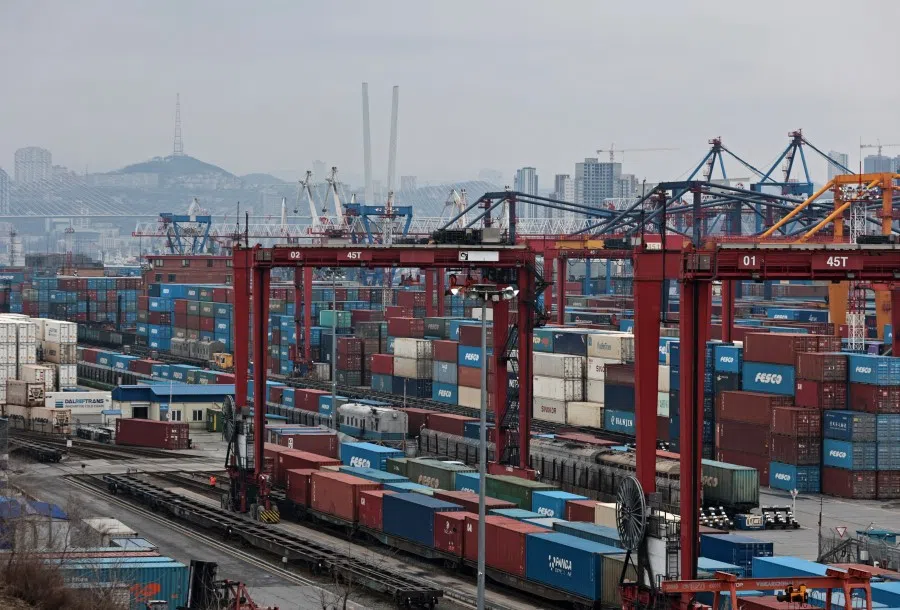
So, instead of opposing the China-Central Asia Summit, Russia has opened up the far eastern port of Vladivostok to China - 163 years after it was annexed by Tsarist Russia, the city has once again become China's domestic trading port.
Of course, China will not distance itself from Russia simply because of the significant progress in its relations with Central Asian countries. Immediately after the China-Central Asia Summit, China announced that Russian Prime Minister Mikhail Mishustin will make an official visit to China from 23 to 24 May, while Chinese Communist Party Politburo member and secretary of the Central Political and Legal Affairs Commission Chen Wenqing will attend the 11th International Meeting of High Representatives for Security Issues and hold the 8th meeting of the China-Russia law-enforcement and security cooperation mechanism in Russia from 21 to 28 May.
According to data released by China's General Administration of Customs on 17 May, the import and export trade volume between China and the five Central Asian countries hit 173.05 billion RMB (US$24.63 billion) in the first four months of this year, an increase of 37.3% year-on-year. In April alone, the total trade volume between China and the five Central Asian countries reached 50 billion RMB, meaning that the bilateral trade volume between China and the five Central Asian countries may exceed US$100 billion next year.
At the same time, bilateral trade between China and Russia is also growing rapidly, with Chinese goods effectively replacing Western products that have exited the Russian market. It is clear that while China is actively expanding its relations with Central Asian countries, it is also consolidating its relationship with Russia and continuing to reap the geopolitical and economic dividends from the Ukraine war.
This article was first published in Lianhe Zaobao as "中国收获俄乌战争红利".





